Jundullah: a militant group with multiple lives
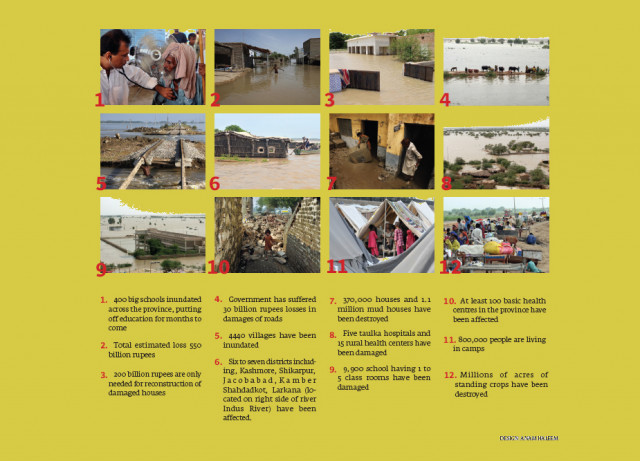
What is thought to be a small group, in terms of numbers, is proving to be extremely resilient, and every time its leadership is captured, tends to return under a new leader. Since 2004, when Jundullah first surfaced, it has gone through two leaders and is now working under a third.
Security officials admit that since they haven’t been able to nab any of the top people in the new cadre, details about their current modus operandi and their exact names remain sketchy.
The investigators are also divided on who is currently running the show in Karachi. According to SSP Special Investigation Unit, Raja Umer Khattab, the ring leader of the Karachi-based group is a person called Haider, alias Raza Bhai. But SSP Crime Investigation Department (CID) Fayyaz Ahmed, says a person called Mehmood, said to be in his 30s, is in charge of operations in Karachi.
The other bit of information investigators have is that “Jundullah, like its previous two tiers, remains a small unit with around 20 members,” says SSP CID Omer Shahid.
Most of these are at large, including the three who escaped from city courts on June 19, even though several are behind bars. And while the officials have some names of alleged terrorists, there are not sure about their authenticity. “These names may not be real,” Khtattab clarifies, adding that it is standard practice among militants to use aliases.
Other information investigators have about the group is that it also has women members, says Khattab. “They are involved in operations and fund-raising for the group,” he says, declining to disclose anything more. “I can’t say anything further on this except that our investigations are ongoing and we will present more details at an appropriate time.”
Targets
Khattab feels that one of Jundullah’s next targets could be the Special Investigations Unit (SIU) as it was instrumental in arresting many of the militant group’s key members. In addition, Khattab adds, “We have information that they may target certain high-profile personalities and sensitive security installations in the city.”
One of the group’s most brazen attacks was the assassination attempt on the then corps commander Karachi, General Ahsan Saleem Hayat, in June 2004. Other attacks suspected to have been carried out by them include the bomb explosion near the US consulate, the blast at the Pakistan American Cultural Centre, the blast outside a concert hall during Indian singer Sonu Nigam’s performance, the blast at the Bible Society, attack on Gulistan-e-Jauhar police station, and an attack on a Rangers van. Although officially Jundullah has been blamed for the Ashura blast in Karachi, its involvement in the incident is disputed as Lahore police claim that the attack was carried out by Harkatul Jihad al Islami.
The al Qaeda link
Jundullah rose to prominence in 2004, when the jihadi outfit led by its first leader Attaur Rehman, staged a daring attack on the convoy of the corps commander, SSP Investigations Farooq Awan says. Almost immediately after the attack, Rehman and several of his associates was arrested. All the members of the group at that time were from Karachi and belonged to urban, middle-class families, Awan adds.
According to intelligence reports available with The Express Tribune, the core group of at that time was made up of those who had fought against the Soviet forces in Afghanistan from the platform of Harkatul Mujahideen (HM), a militant organisation known to have enjoyed state support over the years.
The people who later formed Jundullah are said to have split from the HM after differences emerged between the group’s two senior leaders, Masood Azhar (founder of Jaish-e-Mohammad) and Fazlur Rehman Khalil. Rehman, a former Islami Jamiate Tulaba activist and student at the University of Karachi, decided to then form his own group, which he named Jundullah or Soldiers of God, whose sole agenda during those initial years was to target anti-state and anti-American institutions.
One of Rehman’s trusted associates, Qasim Toori, who took over the group’s leadership after Rehman’s capture, had managed to evade arrest after the attack on the corps commander, even though he suffered injuries.
Toori, a former low-ranking policeman, was treated for his wounds by the infamous doctor, Arshad Waheed. “The Waheed brothers were instrumental in creating links between the Arab militants in the north of the country and the Karachi-based Jundullah militants,” says Ahmed, who interrogated Dr Waheed after he was arrested for treating Toori.
After becoming Jundullah’s leader, Toori took his associates, which included some new members, to Wana in Waziristan. It is here that the bond between Jundullah and an al Qaeda commander of Egyptian descent, Hamza Joofi alias Haji Mumtaz, is said to have been established. Joofi, according to intelligence reports, provided access to a training camp to the Toori-led Jundullah militants, which was being run by Syed Kashif Ali Shah alias Shaheen, son of Syed Shahid Ali Shah. This training facility is still operational, officials say, and Haider, the current alleged leader of the group, is believed to have visited Wana recently to meet Joofi. Toori, meanwhile, like Rehman, is currently in jail and both have been given death sentences by an anti terrorism court.
Funds
Jundullah has traditionally generated funds through bank robberies and kidnapping for ransom, officials say. According to intelligence reports, part of the funds generated through criminal activities was kept by the group, while the rest was sent to Joofi via a contact, who would travel to Waziristan with the loot in an inter-city bus. In fact, Joofi is said to have given specific instructions to Toori to carry out armed robberies in Karachi and send the money back to him.
According to Toori’s interrogation report, he confesses to have dutifully carried out these activities, including numerous bank robberies starting 2007 till the time he was nabbed in 2008. The banks which he allegedly robbed include PICIC Rashid Minhas Road branch, PICIC Malir Halt branch and Bank al Habib Saudabad.
However, these days bank heists by Jundullah seem to be on the wane because of successful police operations against them, claims Khattab. He adds that terrorists need a lot of money for their operations.
Nexus with arms smugglers
The Egyptian militant Hamza Joofi also established a nexus between Jundullah and smugglers, which ensured a steady supply of arms to the group from Waziristan. According to officials, Yaqoob Khan is a smuggler based in Wana whose network continues to bring arms and ammunition to the militants in containers all the way from the northern areas to a trucks’ stand on Mauripur Road in Karachi. “Arms are not a problem for groups like Jundullah. There are several arms smugglers operating in the country who can arrange that for them,” Khattab says. Officials say that apart from supplied by professional arms smugglers, there’s a huge cache of arms floating in the city, available with criminal gangs and even political parities. In fact, even Rehman, Jundullah’s first leader, confessed, according to his interrogation report, that he obtained one of his first stash of arms through a Mohajir Qaumi Movement – Haqiqi unit in charge in Landhi. These included two LMGs, two G3 rifles, two .303, five SMGs, 10 grenades, 2000 rounds and four TT pistols.
Jail birds
Apart from Rehman and Toori, at least 10 other Jundullah members are in custody in different jails of the city, says a top prison official who wishes to stay anonymous. “Rehman and Toori have been placed in a maximum security zone,” he says. The prisoners are facing numerous cases in courts. Some of them have also been acquitted in certain cases as police could not provide sufficient evidence against them.
Moreover, those in jail are coordinating via mobile phones with their associates outside the prison walls, which also helps the police in keeping tabs on them, Khattab says. Nevertheless, a prison official says that jails need jammers as it is next to impossible to completely stop them from smuggling phones and other prohibited items into jails. The official says red tape was holding up the installation of jammers in Sindh.
Published in The Express Tribune, July 13th, 2010.

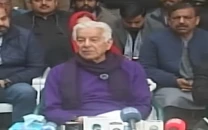
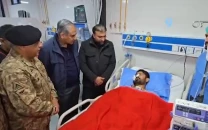

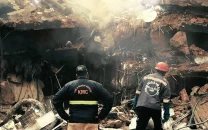
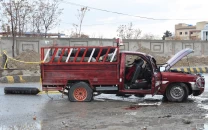













COMMENTS
Comments are moderated and generally will be posted if they are on-topic and not abusive.
For more information, please see our Comments FAQ